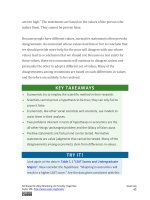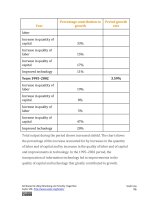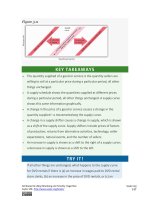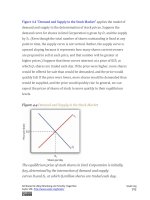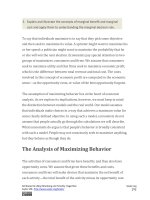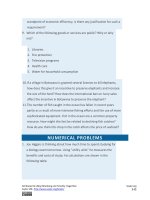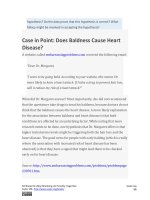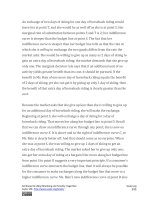Authors libby rittenberg 644
Bạn đang xem bản rút gọn của tài liệu. Xem và tải ngay bản đầy đủ của tài liệu tại đây (399.53 KB, 1 trang )
time spent working. A higher wage thus produces a positive substitution
effect on labor supply.
But the higher wage also has an income effect. An increased wage means a
higher income, and since leisure is a normal good, the quantity of leisure
demanded will go up. And that means a reductionin the quantity of labor
supplied.
For labor supply problems, then, the substitution effect is always positive;
a higher wage induces a greater quantity of labor supplied. But the income
effect is always negative; a higher wage implies a higher income, and a
higher income implies a greater demand for leisure, and more leisure
means a lower quantity of labor supplied. With the substitution and
income effects working in opposite directions, it is not clear whether a
wage increase will increase or decrease the quantity of labor supplied—or
leave it unchanged.
Figure 12.7 "The Substitution and Income Effects of a Wage
Change" illustrates the opposite pull of the substitution and income effects
of a wage change facing an individual worker. A janitor, Meredith Wilson,
earns $10 per hour. She now works 42 hours per week, on average,
earning $420.
Attributed to Libby Rittenberg and Timothy Tregarthen
Saylor URL: />
Saylor.org
644
